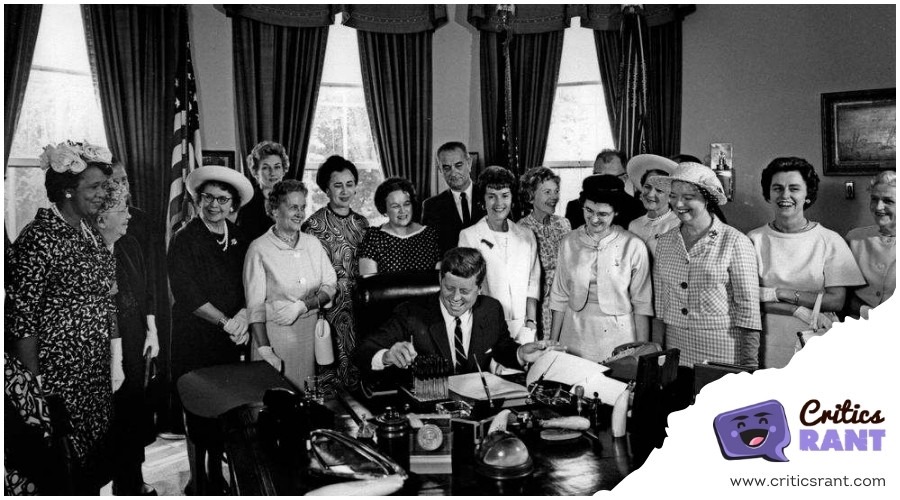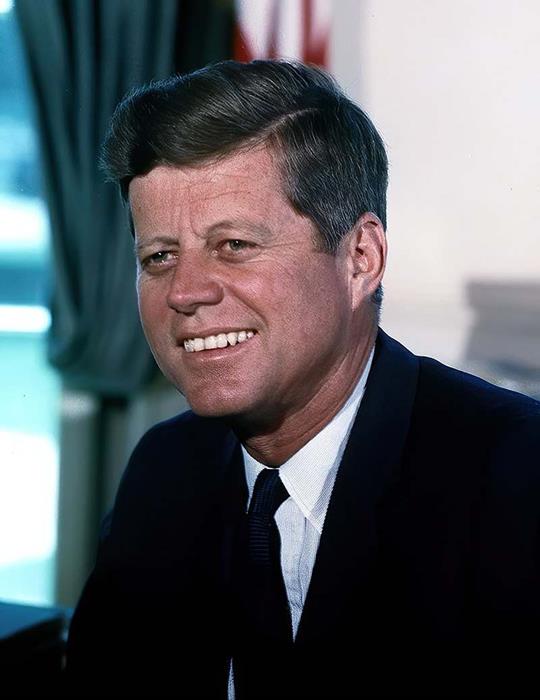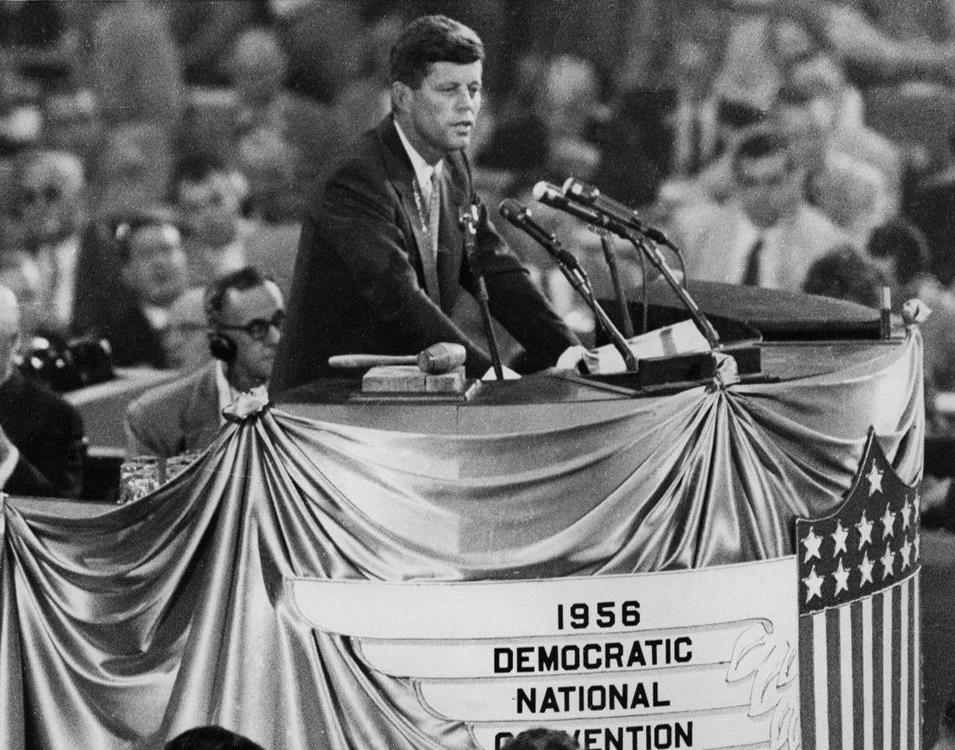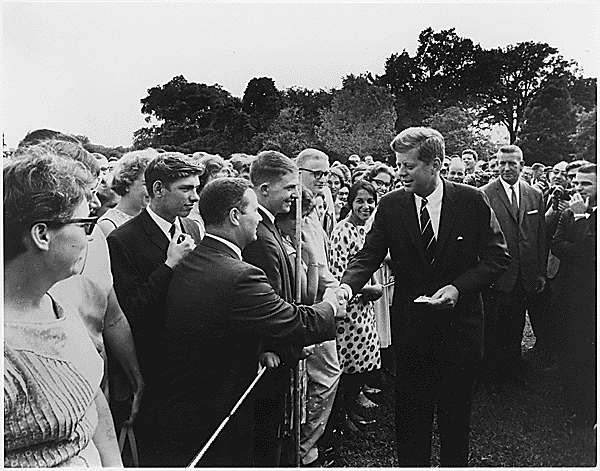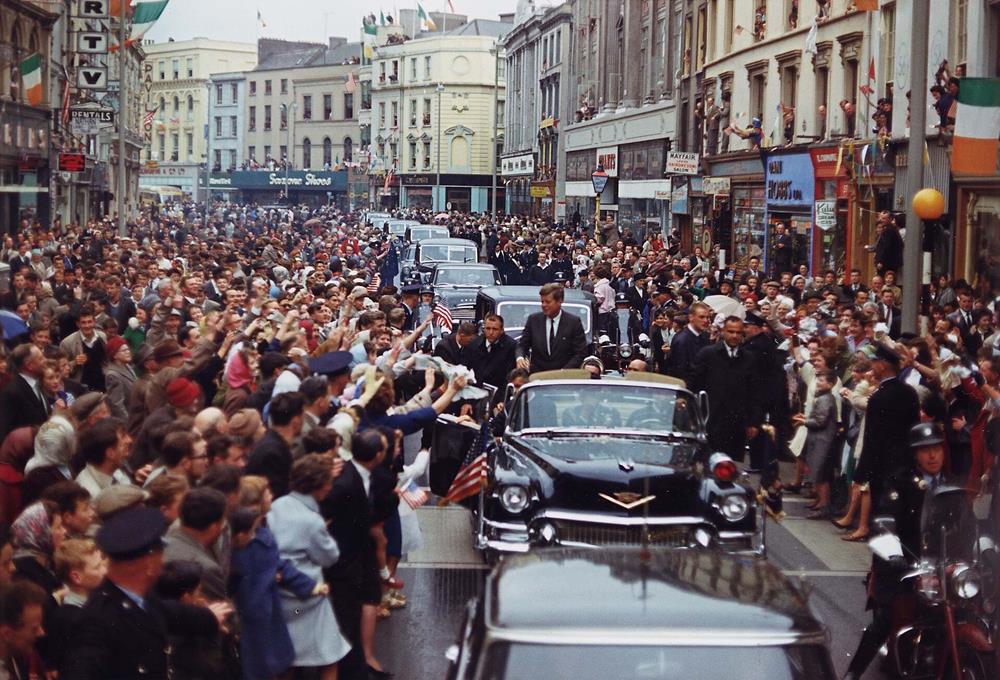John F. Kennedy, the 35th President of the United States, remains a captivating figure in American history, not only for his political accomplishments but also for his intriguing personality traits. Kennedy’s leadership during some of the most pivotal moments of the 20th century, including the Cold War and the Space Race, was profoundly influenced by his character. Understanding the nuances of his personality helps to illuminate how he approached both his public duties and personal challenges.
In this article, we will explore the distinctive traits that defined Kennedy as a leader and an individual. From his charismatic leadership and intellectual curiosity to his commitment to civil rights and adept crisis management, each aspect offers insights into the complex nature of his presidency. By examining these characteristics, we can gain a deeper appreciation for how Kennedy’s personal qualities shaped his time in office and left a lasting impact on American society.
Charismatic Leadership
John F. Kennedy is often remembered for his charismatic leadership, which played a pivotal role in his presidency and helped him connect with the American public and leaders around the world. Charisma, a seemingly natural trait for Kennedy, was characterized by his ability to engage and inspire others with his vision, confidence, and eloquence.
- Eloquent Communication: Kennedy’s charisma was most vividly displayed through his public speaking. His inaugural address, with the immortal line, “Ask not what your country can do for you—ask what you can do for your country,” is a prime example of how his words could motivate and rally support. His speeches were crafted with a deep understanding of rhetoric and often appealed to the higher ideals and aspirations of his audience.
- Telegenic Appeal: In the era when television was becoming a dominant medium in politics, Kennedy’s telegenic presence enhanced his connection with the American public. His calm and composed appearance during the first-ever televised presidential debates in 1960 contrasted sharply with his opponent, Richard Nixon, who appeared nervous and less polished. Kennedy’s television appearances made him accessible and relatable, reinforcing his charisma.
- Personal Charm and Wit: Kennedy’s personal charm and his quick wit also contributed to his charismatic leadership. He was known for his ability to disarm critics and charm journalists, politicians, and the public alike with his humor and grace. This trait was effective not only in smoothing over public relations but also in diplomatic settings, where he often won over other leaders with his personality.
- Inspirational Leadership: Beyond his speeches and personal charm, Kennedy’s charisma was rooted in the optimism and progressive vision he projected. He inspired action and confidence in others, whether he was addressing the nation during times of crisis or advocating for bold initiatives like the Peace Corps or the race to the moon. His ability to make people believe in a greater cause and their role in it was a hallmark of his leadership style.
It was Kennedy’s charisma that often allowed him to pull the nation together during moments of doubt and make strides toward his vision of a “New Frontier.”
Intellectual Curiosity and Education
John F. Kennedy’s intellectual curiosity and commitment to education were central to his identity, both as a person and as a president. This thirst for knowledge not only shaped his worldview but also influenced his approach to governance and policy-making.
Educational Background
Kennedy’s educational journey began in prestigious schools; he attended Choate Rosemary Hall and later graduated from Harvard University. His time at Harvard was formative, culminating in a senior thesis that would later be expanded into the bestselling book “Why England Slept,” analyzing Britain’s unpreparedness for World War II. This early work reflected his deep interest in history and international affairs.
Lifelong Learner
Kennedy’s education did not stop at university. He was a voracious reader, known to consume volumes on history, politics, and economics. His intellectual curiosity drove him to stay informed about a wide range of subjects, which helped him engage with experts and leaders on various complex issues during his presidency. His reading informed his perspectives and policies and allowed him to address the nation’s challenges with a well-rounded understanding.
Cultural Engagement
Kennedy’s interest in intellectual pursuits extended beyond books. He was a strong supporter of the arts and understood the importance of cultural richness in society. His administration is famous for inviting artists, musicians, and intellectuals to the White House, thereby fostering a cultural renaissance that underscored the significance of intellectual growth and artistic expression in American life.
Impact on Policy
Kennedy’s intellectual background was evident in his approach to policy-making. He often convened panels of experts to discuss key issues, from nuclear strategy to economic policy, reflecting his belief in data-driven, informed decision-making. His establishment of the Peace Corps and advocacy for space exploration were driven by his understanding of global dynamics and future scientific possibilities, demonstrating how his intellectual curiosity translated into visionary policies.
Promotion of Education
Understanding the value of education, Kennedy championed educational initiatives, emphasizing the need for the United States to invest in its human capital to maintain its competitive edge in the Cold War era. His push for federal funding for education, including higher education, aimed to ensure that all Americans could benefit from the kind of intellectual stimulation that he valued so highly.
Kennedy’s intellectual curiosity and emphasis on education were not merely personal traits but were integral to his vision of a progressive America. His leadership style and policies reflected a profound respect for knowledge and learning, traits that greatly enhanced his effectiveness and left a lasting legacy on the nation’s educational and cultural landscape.
Commitment to Civil Rights and Equality
John F. Kennedy’s presidency marked a crucial period in the evolution of civil rights in the United States. Although initially cautious due to political pressures, Kennedy’s commitment to civil rights and equality grew stronger over his time in office, leading to significant advancements.
- Initial Hesitation and Gradual Engagement: Early in his presidency, Kennedy was somewhat hesitant to push aggressively for civil rights reforms, largely due to the need to maintain support from Southern Democrats in Congress. However, as civil rights issues gained national prominence, Kennedy’s stance evolved. The escalating racial tensions and public protests underscored the urgent need for change, prompting Kennedy to take more definitive action.
- Pivotal Actions and Speeches: One of Kennedy’s most significant moments came on June 11, 1963, when he delivered a landmark speech addressing the nation on civil rights. In this speech, he declared civil rights to be a moral issue as clear as the Constitution and as old as the Scriptures, asserting that the time had come to act decisively. This speech laid the groundwork for what would later become the Civil Rights Act of 1964. Furthermore, his administration supported the integration of the University of Mississippi, backing James Meredith’s right to attend in a historic confrontation with state authorities.
- Legislative Initiatives: Kennedy’s administration proposed comprehensive civil rights legislation aimed at ending segregation in public places, protecting the right to vote, and ensuring equal employment opportunities. This proposal was a bold move, marking the first time a president had committed to such extensive civil rights reforms since Reconstruction.
- Support for Martin Luther King Jr. and the Civil Rights Movement: Despite initial wariness to fully align with civil rights leaders, Kennedy eventually formed a complex but crucial alliance with Martin Luther King Jr. Following King’s arrest in Birmingham, Kennedy made a pivotal decision to call Coretta Scott King to express his concern, a move that significantly bolstered his standing within the African American community. The administration also played a role in securing King’s release, signaling a more direct engagement with the civil rights movement.
- Legacy in Civil Rights: Kennedy’s commitment to civil rights did not see full fruition during his lifetime, as his assassination in 1963 preceded the passage of major civil rights laws. However, his efforts paved the way for the landmark Civil Rights Act of 1964 and the Voting Rights Act of 1965, both of which were influenced by the foundation he laid.
His leadership during this transformative period helped to catalyze changes that would reshape the nation’s legal landscape and societal norms concerning race and equality.
Personal Challenges
John F. Kennedy faced numerous personal challenges throughout his life, many of which impacted his presidency and shaped his public persona. His struggles with health issues, familial expectations, and personal tragedies not only tested his resilience but also humanized a man often viewed as a charismatic leader.
- Chronic Health Issues: Unbeknownst to the general public at the time, Kennedy battled significant health problems, including chronic back pain and Addison’s disease—a rare endocrine disorder. His back pain was so severe that it sometimes interfered with his duties, requiring multiple surgeries and constant medical attention. Despite these challenges, Kennedy maintained a vigorous public schedule and often stood for long periods during speeches, hiding his discomfort from the public eye.
- Medical Treatments and Privacy: Kennedy’s medical treatments were extensive and complex, involving regular administration of painkillers, anti-inflammatory medications, and steroids to manage Addison’s disease. The extent of his health issues was kept secret from the public during his presidency, as his administration feared that such revelations could undermine his image of youthful vitality and strength. This secrecy was maintained with the support of his close aides and personal physicians.
- Family Expectations and Political Legacy: Coming from a prominent and ambitious family, Kennedy also navigated the high expectations placed upon him by his father, Joseph P. Kennedy Sr. His father’s aspirations for his sons were well-known, pushing John and his siblings toward public service and political achievements. The pressure to uphold the family’s reputation and continue the Kennedy legacy was a constant throughout John F. Kennedy’s career.
- Personal Losses and Tragedies: Kennedy’s life was marked by personal losses, including the deaths of his siblings and the tragic loss of his infant son, Patrick Bouvier Kennedy, who died just two days after birth in August 1963. These personal tragedies were deeply affecting and brought out a more introspective and compassionate side in Kennedy, qualities that he carried into his public duties.
- Strength and Resilience: Despite these adversities, Kennedy’s resilience became a defining feature of his presidency. He used his personal struggles to connect with others facing hardships, displaying a depth of empathy and understanding that endeared him to many. His ability to persevere in the face of personal challenges also lent him a certain gravitas and courage, seen most clearly during periods of national crisis, such as the Cuban Missile Crisis.
Kennedy’s personal challenges added layers to his character, revealing a man who was not only a leader but also a fighter, constantly battling against physical pain and personal adversities. This human aspect of Kennedy made his accomplishments in office all the more remarkable, demonstrating that personal vulnerabilities do not preclude professional strength and leadership.
Conclusion
John F. Kennedy’s charismatic leadership, intellectual curiosity, commitment to civil rights, and resilience in the face of personal challenges all played crucial roles in shaping his time in office and his enduring legacy. Kennedy’s ability to inspire and lead through complex times continues to resonate, reminding us of the profound effect that personal qualities can have on a leader’s effectiveness and the course of history.
US Presidents | ||

